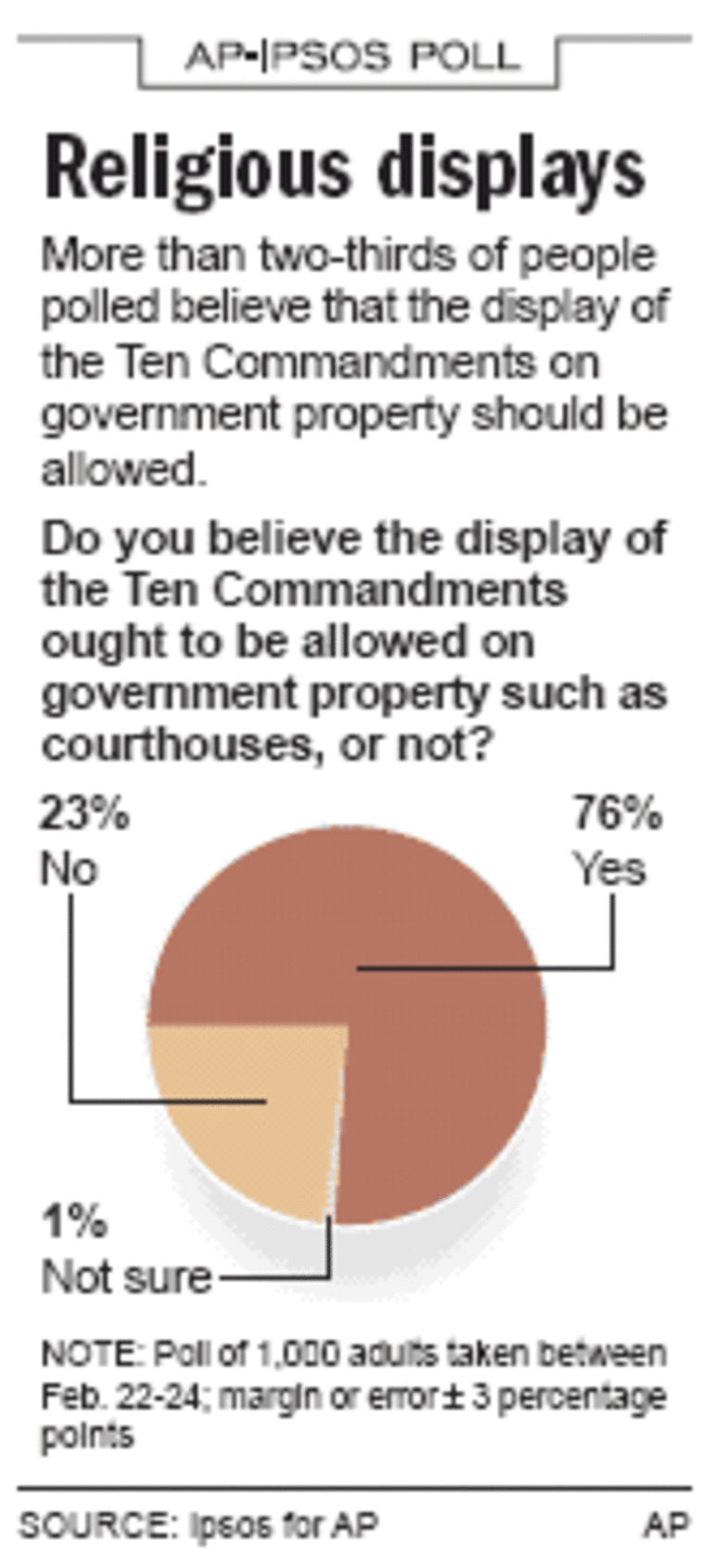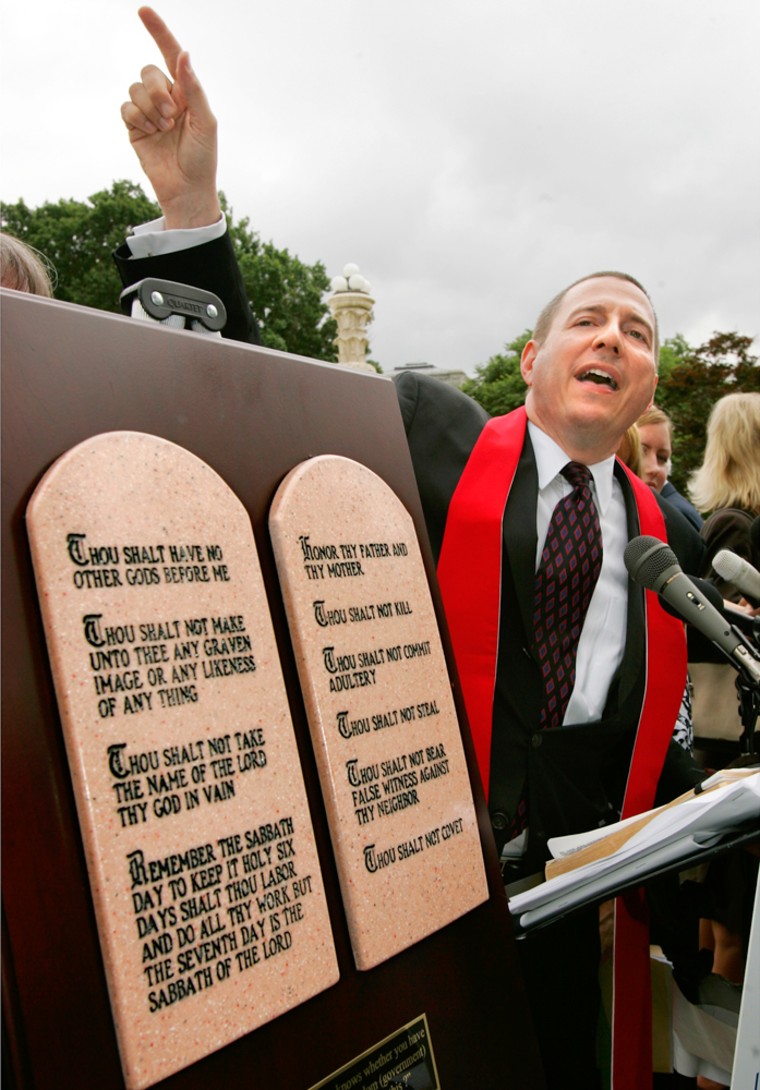Residents of two Bible Belt mountain counties reacted with anger and grudging acceptance after the Supreme Court upheld some public displays of the Ten Commandments — just not theirs.
The U.S. Supreme Court on Monday ruled that such exhibits on government property must be evaluated on a case by case basis to ensure they don’t violate the Constitution, but that southeastern Kentucky’s McCreary and Pulaski counties went too far and promoted a religious message.
“We will abide by the ruling of the Supreme Court,” said Blaine Phillips, McCreary County’s judge-executive, or top administrator. “However, we want to encourage our citizens not to give up the fight.”
McCreary and Pulaski, neighboring counties in the mountains of eastern Kentucky, couldn’t be more fitting places for such a stand. Fundamentalist Christian churches dot the hills and hollows, along with road signs urging travelers to repent now and turn their lives to Jesus.
Officials first hung framed copies of the Ten Commandments in their courthouses in 1999 and later added other documents, such as the Magna Carta and Declaration of Independence, after such displays were challenged as religious by the American Civil Liberties Union.
At the height of the controversy, residents of the two counties — both of them alcohol-dry — took to planting blue-and-white Ten Commandments markers on their front lawns to show their support.
'Heartbroken'
Word of the high court’s decision was met with frustration Monday. “I’m heartbroken,” said former McCreary County Judge-Executive Jimmie Greene. “I’m devastated to be honest with you.”

“They take prayer out of schools, they take the Ten Commandments down and they wonder what’s wrong with our society. It’s just wrong,” said Joe Kidd, who was working at a fireworks stand in Whitley City.
Elsewhere in the state, many officials hoped their displays wouldn’t meet the same fate.
The commandments were still posted Monday near the front doors to the Mercer County courthouse in Harrodsburg, once an early frontier town in Kentucky’s Bluegrass region. The commandments are part of a display featuring other famous documents, identically framed.
In northeastern Kentucky, a similar display, including the Ten Commandments, hovered on a wall in the fiscal court room in the Rowan County courthouse as county magistrates met Monday.
Legal fight underway
Both counties are among a handful in the state still in a legal fight with the American Civil Liberties Union of Kentucky over displays that include the commandments.
David Friedman, who successfully argued the ACLU’s case before the Supreme Court, said Monday’s ruling reaffirmed a core principle — “that government and religion should not become impermissibly entangled.”
Friedman said the ACLU would vigorously pursue its remaining cases.
In early 2003, a federal judge dismissed the ACLU’s lawsuit seeking to remove the Ten Commandments from the Mercer County courthouse. That case is pending before a federal appeals court. The same judge refused the ACLU’s request for a preliminary injunction to take down public commandment displays in Rowan and Garrard counties.
Meanwhile, only the frame remains in what had been a Ten Commandments display in the Grayson County courthouse in western Kentucky. The ACLU previously won an injunction from another federal judge ordering that the commandments be taken off the courthouse wall.
Framed copies of other documents — including the Declaration of Independence, the Magna Carta and the Bill of Rights — are still on the courthouse wall. “We’ll still hope and pray and continue fighting to save them,” Grayson County Judge-Executive Gary Logsdon said.
Logsdon said the commandments display was important to residents. “We’re a believer in God, and we’re a moral community,” he said. “We preach it and teach it to our children.”
Tribute to legal, religious history
In a second decision Monday, the Supreme Court considered the commandments monument on the grounds of the Texas Capitol — one of 17 historical displays on the lot — and determined it to be a legitimate tribute to the nation’s legal and religious history.
Speaking to reporters at his downtown Louisville law office, Friedman said he welcomed people celebrating and displaying the commandments, just not on government property.
“They should do it in their homes, in their religious institutions, on their cars, in their businesses and not through their government,” he said. “The government is all of ours, and it can only be all of ours when it remains neutral.”
